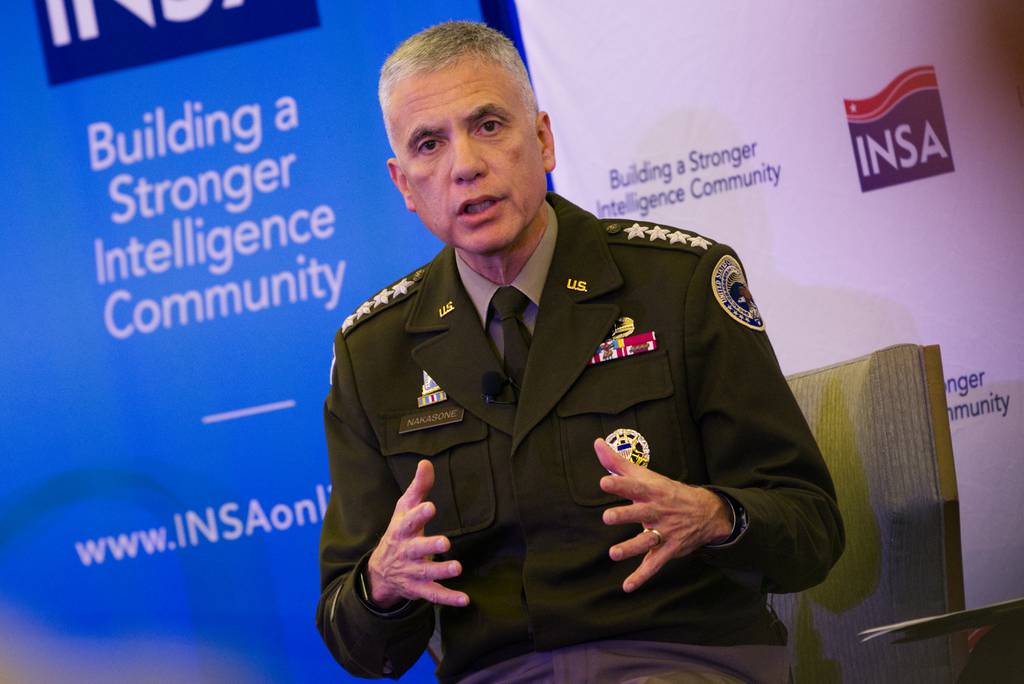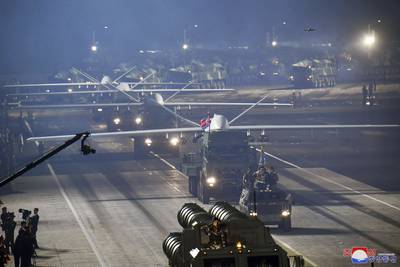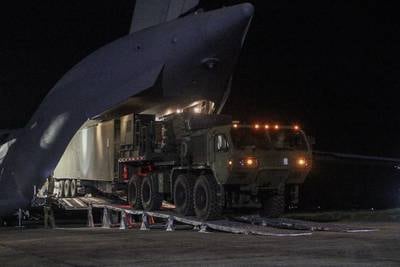WASHINGTON — The leader of U.S. Cyber Command urged Congress to renew a contentious foreign spy program as lawmakers debate its future.
U.S. Army Gen. Paul Nakasone, who also heads the National Security Agency, on Dec. 8 described Section 702 of the Foreign Intelligence Surveillance Act as “the most important authority that we utilize day in, day out.” A lapse, he said at an Intelligence and National Security Alliance event here, would be disastrous.
Section 702 allows the government to collect and review communications like emails and text messages of foreigners abroad, including when they are in touch with Americans. The power is set to expire at the end of the month, following renewal in 2018.
The Biden administration is pushing for reauthorization while also battling criticism from groups that say it is ripe for abuse and amounts to a warrantless dragnet. Nakasone rejected the criticisms Friday.
“As the director of the National Security Agency, I will tell you that our focus is not only national security. It’s also the protection of our civil liberties and privacy,” he said. “This is an authority with oversight and transparency that allows both of those things.”
RELATED

The House judiciary and intelligence committees this week advanced legislation that would re-up the powerful spying tools. The measures differ, though, and House Speaker Mike Johnson, R-La., has threatened a showdown on the House floor, Politico reported.
Nakasone’s advocacy aligns him with other government and military officials, including FBI Director Christopher Wray and Air Force Lt. Gen. Timothy Haugh, the CYBERCOM deputy chief.
Haugh, who is expected to succeed Nakasone in the dual role, but remains in confirmation limbo, in July said Section 702 was irreplaceable and served as the cornerstone of the president’s daily intelligence rundown.
“When we see things like the origins of fentanyl in China and its path that it takes to the United States? Informed by 702,” Haugh told lawmakers at the time. “Counterterrorism actions, the ability to see some of the egregious acts that Russia has done in Ukraine? Informed by 702.”
Colin Demarest was a reporter at C4ISRNET, where he covered military networks, cyber and IT. Colin had previously covered the Department of Energy and its National Nuclear Security Administration — namely Cold War cleanup and nuclear weapons development — for a daily newspaper in South Carolina. Colin is also an award-winning photographer.








